Best road bike tyres: Clinchers and tubeless tyres for cycling
Our pick of the best road bike tyres for speed, grip, and puncture protection
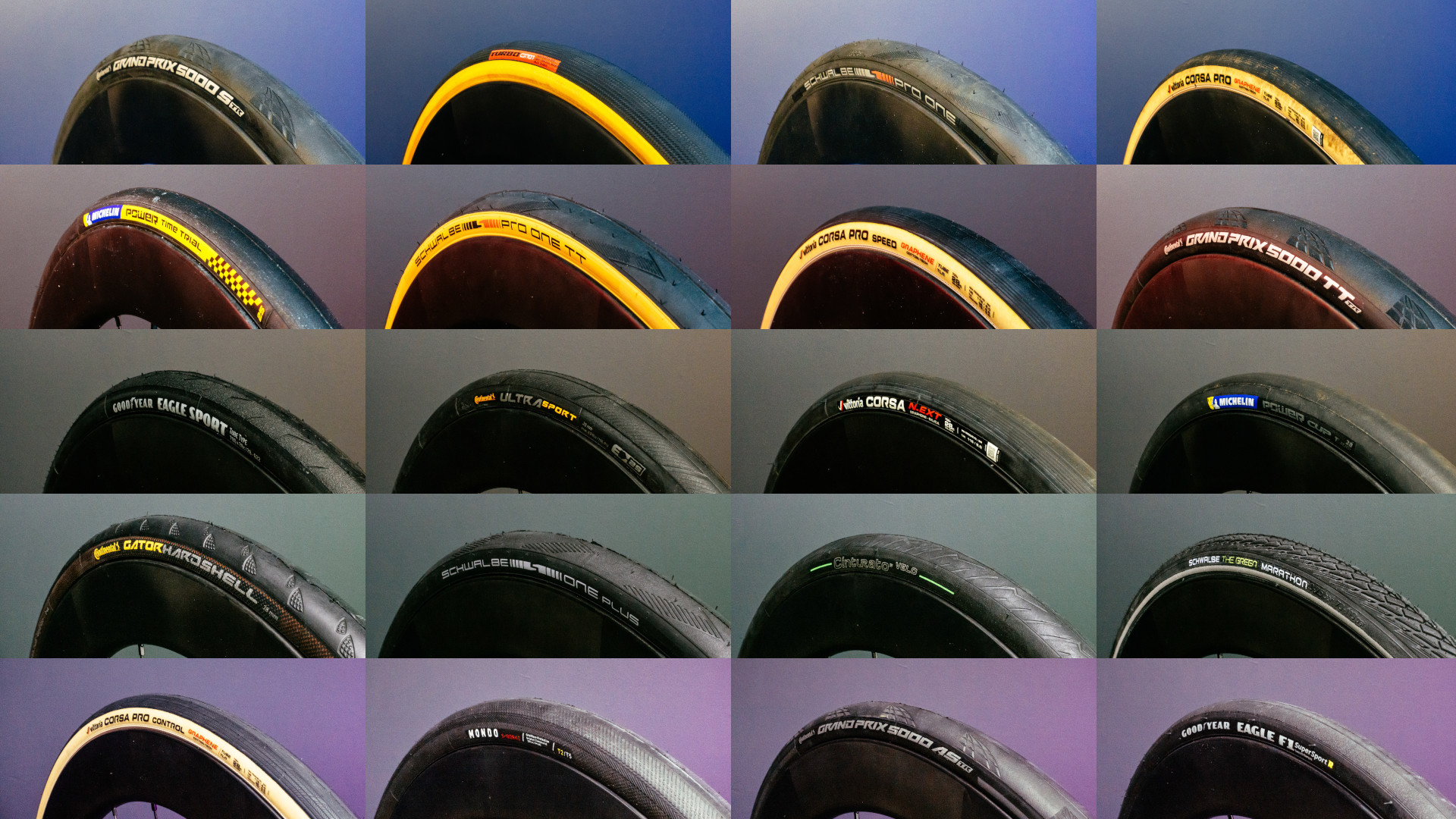
It's an often-used phrase in bike media, but a tyre upgrade is about the best bang for your buck as far as upgrades go. New bikes are often specced with cheaper tyres in order to hit a price point, and trading up for some better rubber can be genuinely transformative.
The best road bike tyres sit in the middle of the Venn diagram, with low rolling resistance, high grip, and decent puncture protection, but each model has its own characteristics. For some of you, puncture resistance may be more important - if you're commuting, for instance - or speed may be the only goal if you're racing against the clock. Tyre tread makes less of a difference than it does with the best gravel tyres, but the tread pattern is still important when discussing grip.
Alongside real-world testing to determine how tyres perform on the road, we rolled 24 of the best road bike tyres into the lab and can confidently tell you which road bike tyres are the fastest based on our efficiency rig testing. Rolling efficiency isn't the be-all and end-all and what works for some may not work for others, so as well as highlighting our recommendations for all-rounder tyres, time trial tyres, winter options and the like, we've also added a few additional options in each category, each of which we'd be happy to run ourselves.
As ever, if you're stuck, we've got a how to choose guide at the bottom of the page to help you make the right choice.
Best road bike tyres: Quick list
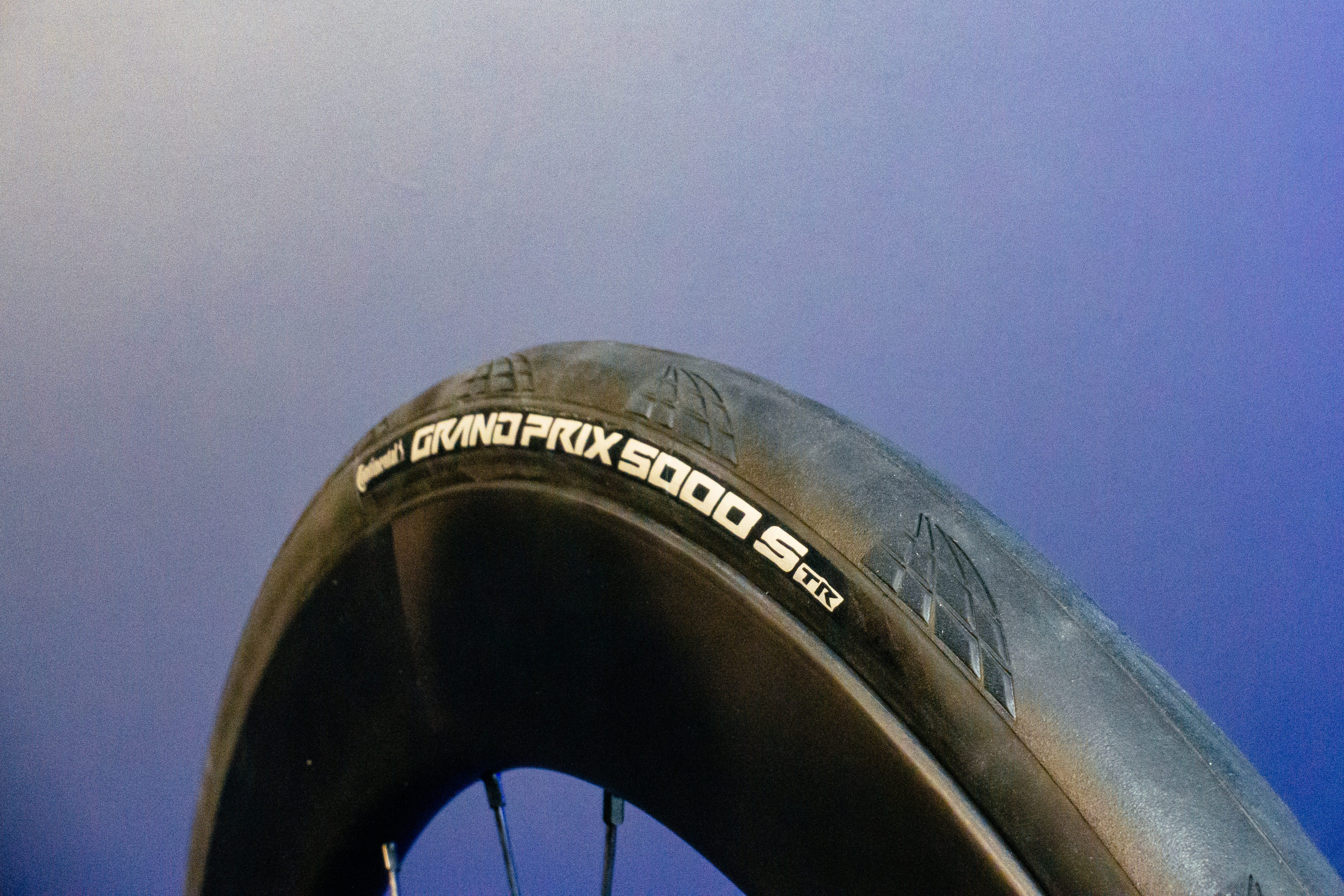
Fast, grippy, and long-lasting. It's everything you could conceivably want from a road bike tyre. The only downside is that they can be a little hard to mount, so make sure you have some decent tyre levers.
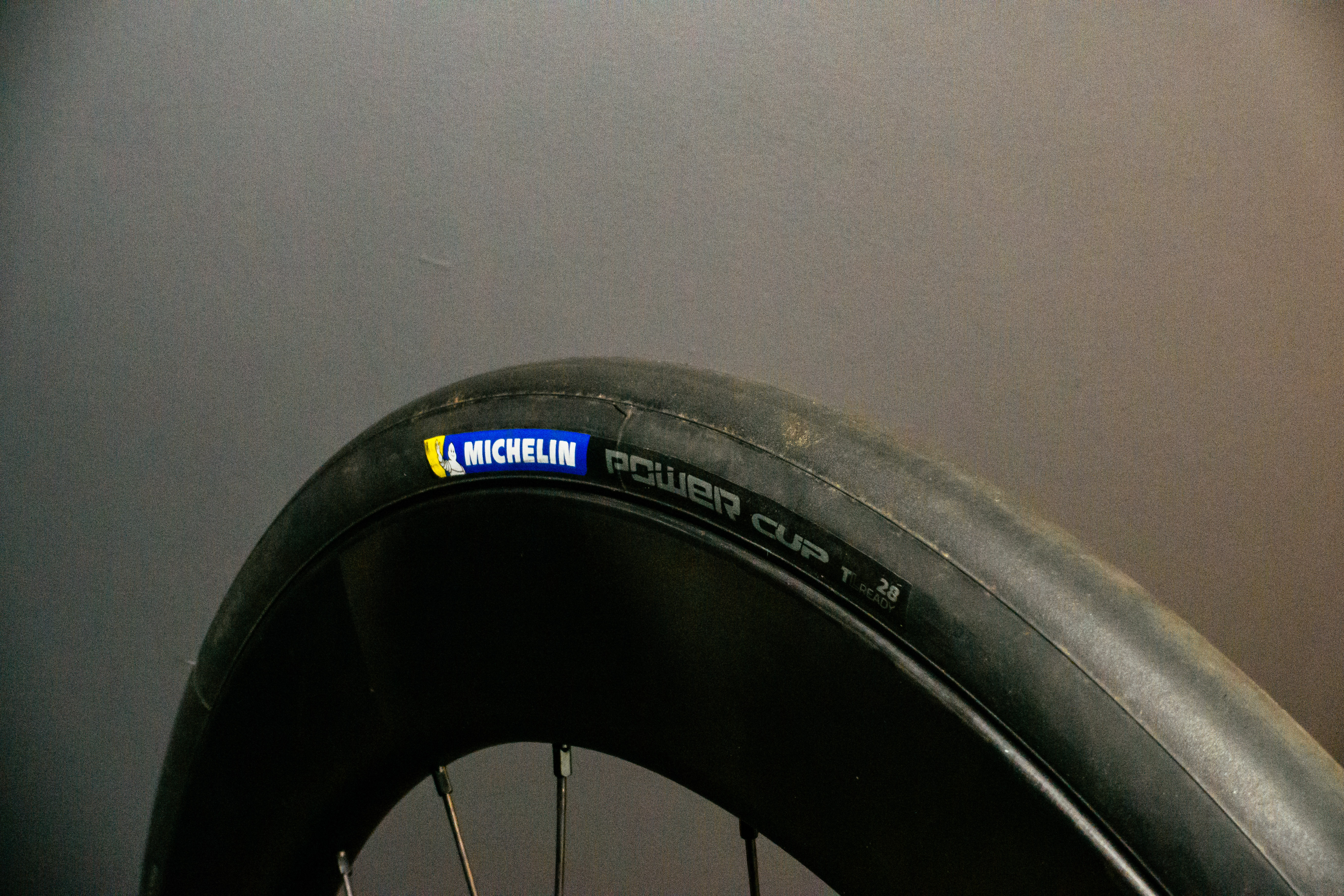
You can pick these up for around 1/3 the price of a top-end tyre, but you wouldn't know it from the way they ride. Round, supple, with tacky rubber, and tubeless ready. A true wallet-friendly winner.
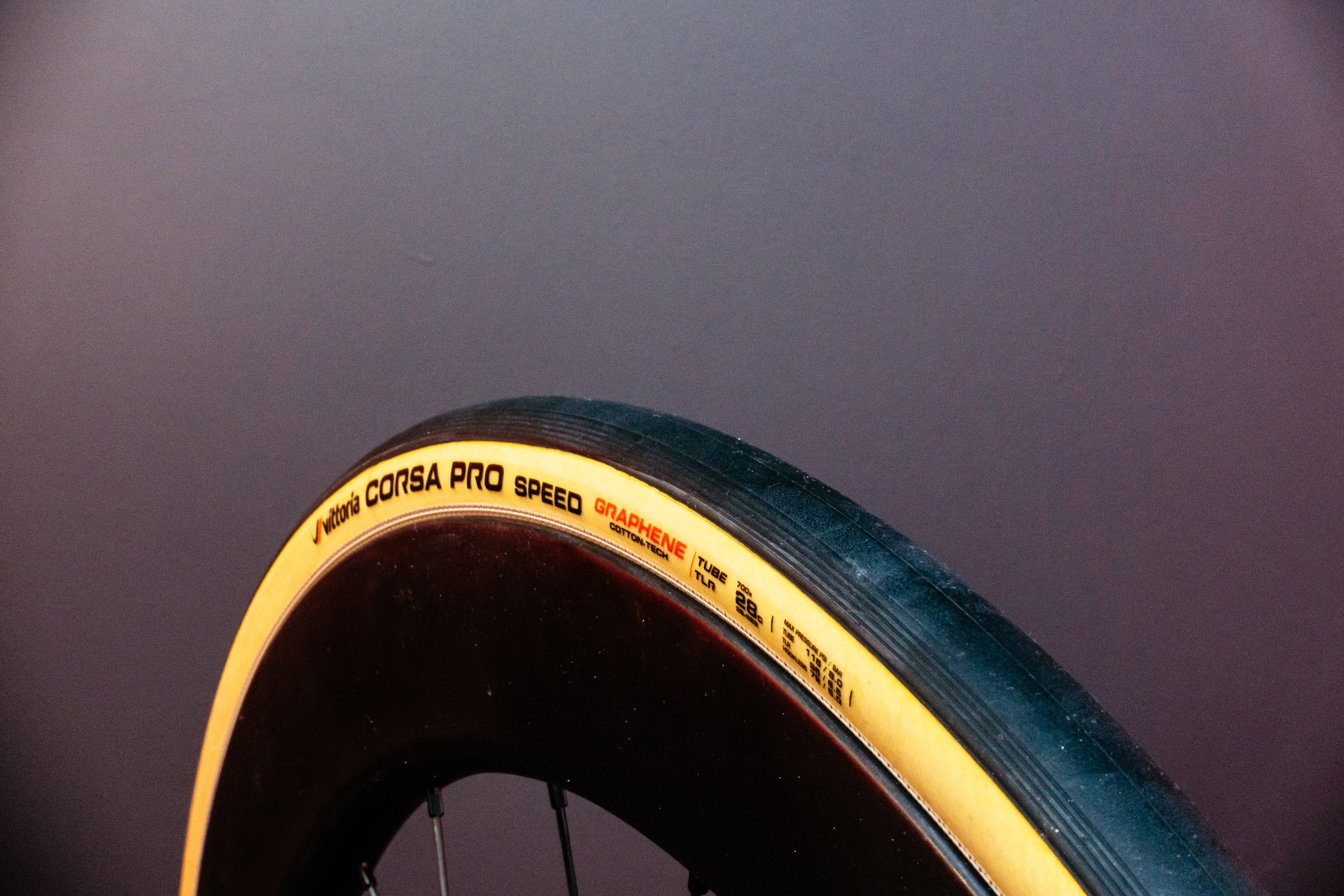
If you want the lowest rolling resistance possible, then look no further. Doing away with the puncture protection strip, combined with a cotton casing makes these extremely fast, though make sure you watch out for glass!
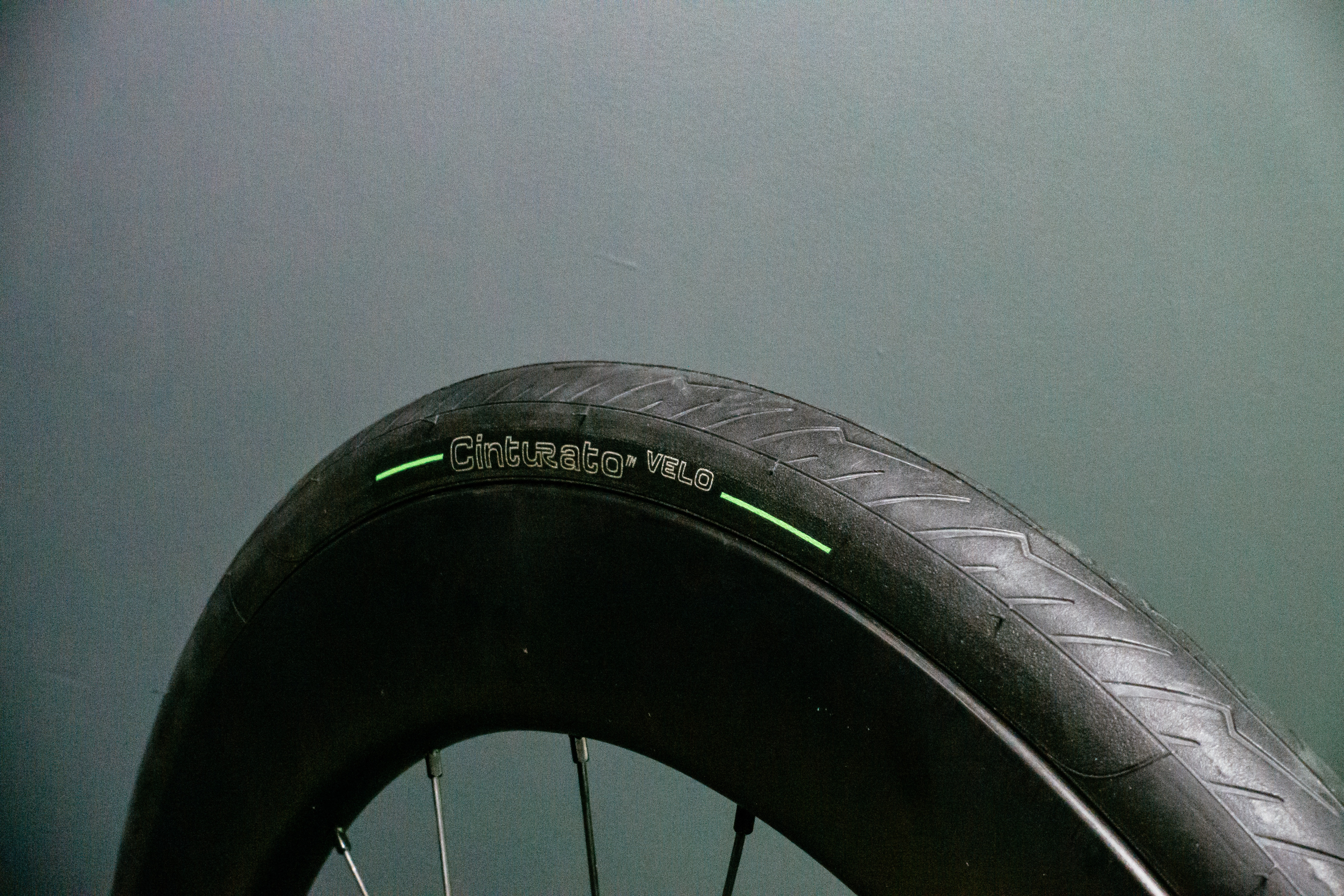
If you want a tyre for stress-free city riding or light touring, then this is it. The puncture protection is class-leading, and considering the sturdiness, the speed and grip are decent too.
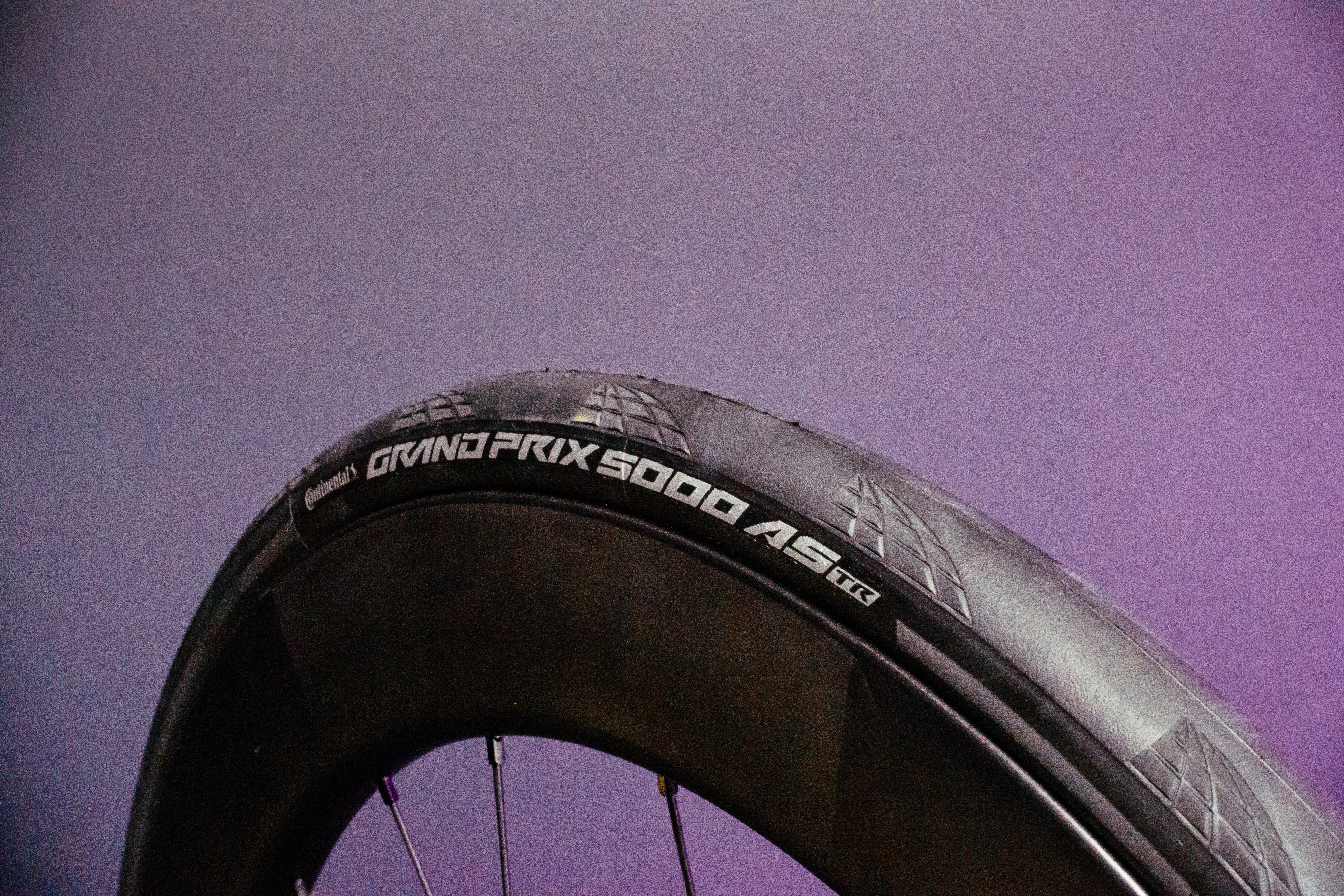
If grip is what you're after, then the GP5000 AS (All Season) is hard to beat. There is a little more puncture protection on offer too, thanks to a slightly more sturdy casing. If you're only using them for winter then it is a bit of an investment though.
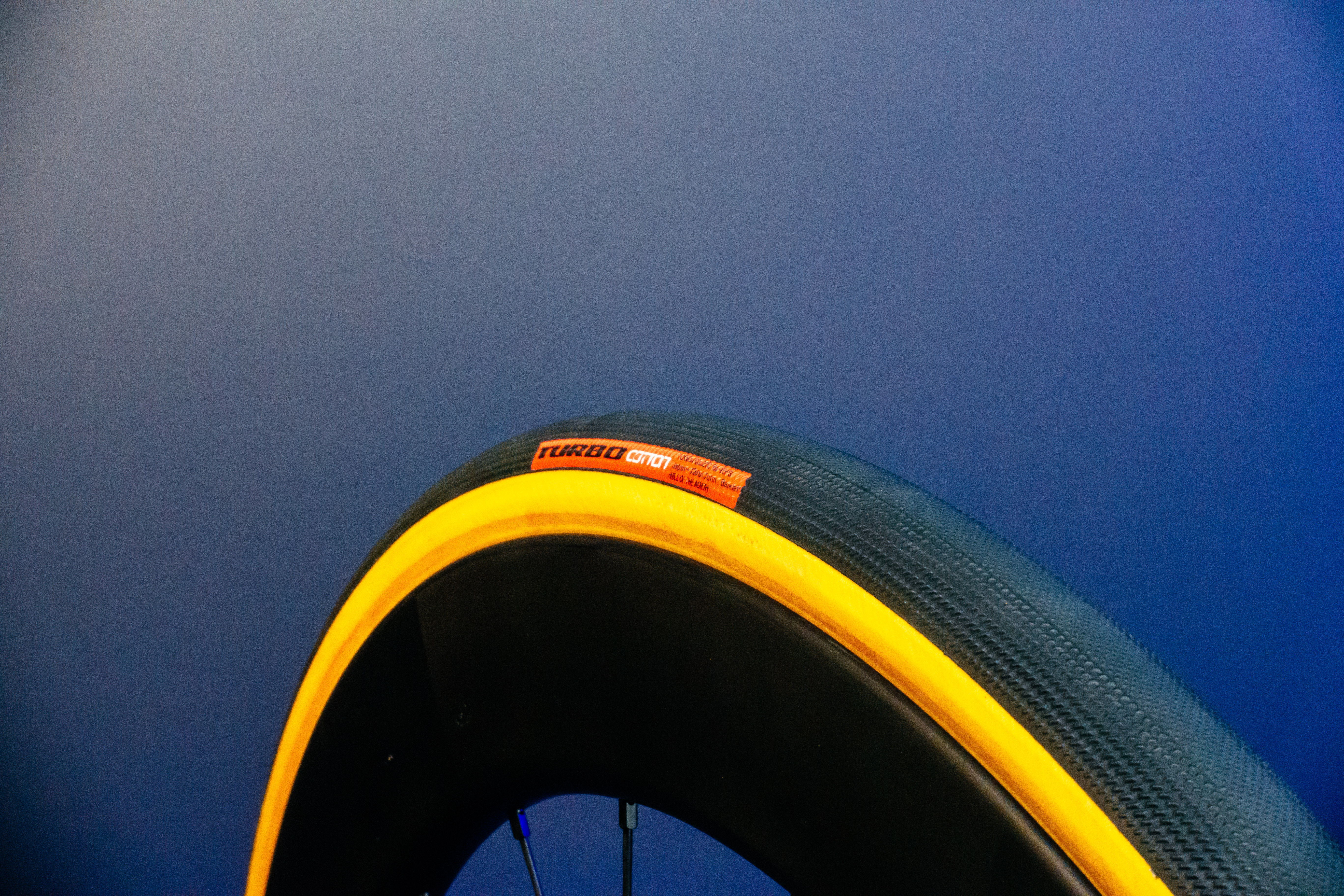
Not sold on tubeless? Well, neither are Bora-Hansgrohe and Soudal-QuickStep, who are both using Specialized Turbo Cotton tyres with latex inner tubes over tubeless options this season. If you want a fast clincher without any goo, then this could be the one.
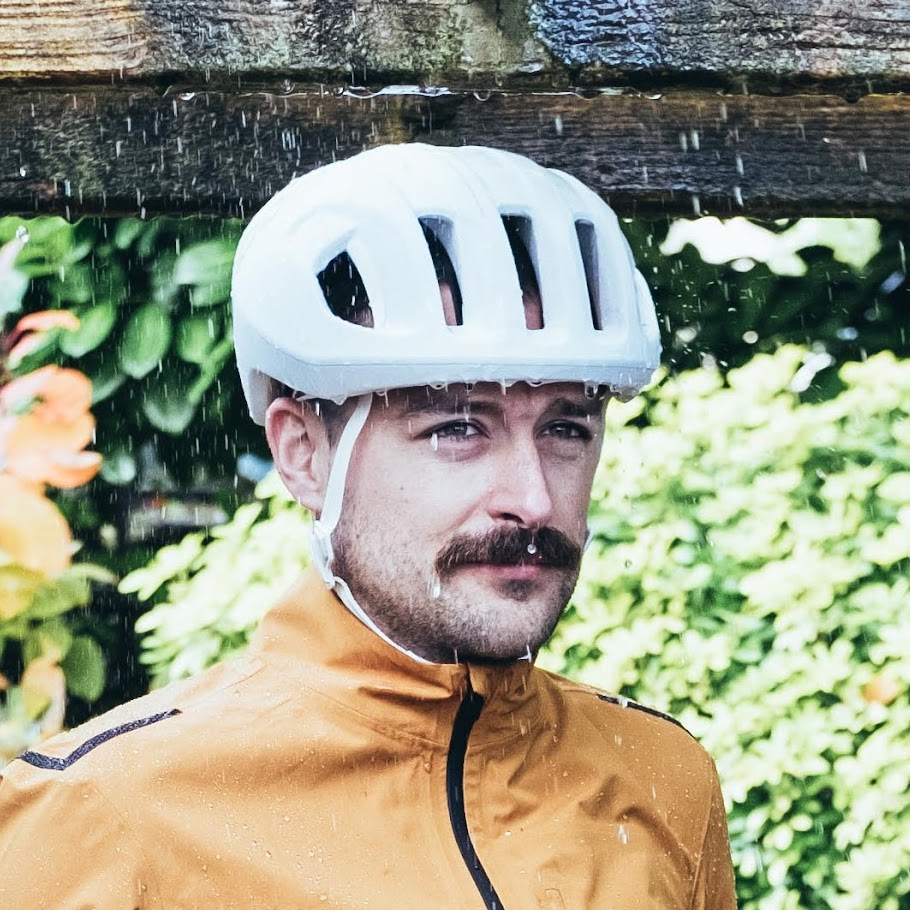
Tyre testing was how I began my career as a bike journo, so in addition to the years of riding experience on and off-road, I have over three years of testing tyres under my belt professionally. I have a crate of hoarded tyres saved 'for best' under my desk and I am forever swapping them in search of the best setup. My judgment is of course informed by our recent tyre rolling resistance testing, but lab results can only tell you so much and are no direct substitute for real world riding. I also tend to commute on my road bike too, so these tyres get to see not only lovely pristine tarmac, but the worst of the UK's cycling infrastructure, with glass, potholes, moss, and random surprise gravel.
Last updated on 26th of June, 2025 Updated the guide so that it follows the standard Cyclingnews format and added additional easy-to-consume buying advice to each product. Products in the guide have also been checked to ensure that they are still current and backed up by our lab test results and reviews.
In order to make this guide as useful as possible I have taken our real-world experiences with the tyres and combined them with Cyclingnews' efficiency rig testing. Cyclingnews independently performed the lab testing at the Silverstone Sports Engineering Hub facility using its drivetrain efficiency rig with a simulated tarmac surface. All wattage loss figures used in this guide were measured at 9 m/s (32.4 kph) and represents the difference vs our top-rated tyre, the Continental GP5000 S TR.
If you want to see the full results including wattage losses at 9 m/s and 11 m/s, tubes vs tubeless, and the effect of tyre pressure on rolling resistance, our which road bikes are the fastest test feature is available to Cyclingnews Premium members.
The guide also uses data from bicyclerollingresistance.com, the 'grip' and 'puncture protection' stats are taken from publically available data from this site, and used with permission. For reference, grip is the static wet grip, and both rolling resistance and grip are for a 28c variant unless otherwise stated. For puncture protection and grip, the higher the number the better.
Best all round road bike tyres

Specifications
Reasons to buy
Reasons to avoid
✅ You want speed: In our lab testing, the GP5000 tyres are faster than many competitors, including the pro-favourite Vittoria Corsa Pro, making them ideal for performance-oriented road bikes.
✅ You want longevity: They offer excellent lifespan and feature clear wear indicators, so you know when to replace them.
❌ You don't want difficult fitting: These tyres can be notoriously hard to mount on certain rims, so be prepared for a potential fight when fitting.
There's a reason the GP5000 has become the gold standard for road bike tyes, much like its predecessor the GP4000. Whenever I get a set specced on a test bike it's always a plus point, partially because it does wonders for the handling, but also because it means I don't have to fit them myself - they are notoriously tricky with some rims, so get some of the best tyre levers you can to make sure you don't have a bad time.
My experiences with them are backed up by the BRR data. They are faster than the Vittoria Corsa Pro, the other model that's ubiquitous amongst the pro peloton, but there is a slight penalty in grip and puncture protection as a trade-off.
While their puncture protection is a few points less, I've found their overall lifespan to be excellent, plus they come with easy-to-see wear indicators so you know when they've reached the end of their life. The sidewall protection is also going to be better than that of a cotton-cased tyre.
In short, if you've got a performance-oriented road bike and want to get the best out of it then these are the tyres I'd recommend you opt for. They are expensive, but in the context of top-end tyres, they are similar to the competition.
If you want to know more about how they ride be sure to check out our Continental Grand Prix 5000 S TR review.
Best budget road bike tyres

Specifications
Reasons to buy
Reasons to avoid
✅ You want a smooth, confidence-inspiring ride: The round profile and uniform tread deliver progressive grip with no sudden loss of traction when cornering.
✅ You want great value for money: Performance rivals premium tyres, but the price is around a third of top-tier options.
❌ You don’t want tyre fitting frustration: These tyres can be difficult to seat on various rims and may unseat after a puncture.
❌ You need modern compatibility: They're not hookless-rim compatible and are only available in narrower widths, limiting options for riders favouring wider, modern setups.
I really love these tyres. I first came across them by accident on a Vitus test bike and they've been a favourite ever since. The uniform tread, combined with a really lovely round profile gives them a super progressive ride quality; there's no sudden change in grip as you go onto the shoulders.
They're fast, too, and grippy, and pretty sturdy. The stats are up there with far more premium tyres, but you can pick these up for around 1/3 the price of top-tier rubber, so if you value a bargain then look no further.
There are drawbacks, though. I found them a real pain to seat on several different rims, and when I flatted they tended to unseat. They are also not compatible with hookless rims, and only come in narrower widths; none of this modern 32c nonsense!
If they fit your size requirements, though, you're onto a winner. I'd suggest taking a CO2 inflator with you though, as well as a mini pump, as that'll more easily reach the pressures needed to re-seat them in the event of a flat.
You can read my full Michelin Power Cup review.
Best road bike tyres for speed

3. Vittoria Corsa Pro Speed
Specifications
Reasons to buy
Reasons to avoid
✅ You want ultimate speed: These tyres have incredibly low rolling resistance, making them ideal for time trials and competitive events.
✅ You want proven performance: They've been used successfully in top-level time trials, giving them strong race credibility.
❌ You want daily durability: The lack of a puncture protection belt makes them unsuitable for general road riding.
❌ You want easy maintenance: They're expensive and require careful setup—cheap tubes or too much sealant will compromise performance.
I really wouldn't advise fitting these to your bike for general road riding, but if you have an event where wringing out every last watt is key, then these are impossible to look over. Perfect for that 10-mile TT, or maybe even a crit on a dedicated, well-maintained track.
The incredibly low rolling resistance is thanks to Vittoria making the central smooth portion of the tread wider, eschewing the shoulder sipes (or 'grooves' to you and I) on all but the extreme edges. What's more, the usual puncture protection belt has been removed to make the tyres even more supple.
These have been proven in top flight time trials, so they have a real race-winning pedigree, but that doesn't come cheap - again, keep them for your race wheels or you may have to catch a train home.
On a similar note, spending all this money on such a fast tyre and either using cheap inner tubes or overfilling them with sealant would be a waste of money and power, so take the time to set them up properly.
Best road bike tyres for puncture protection

4. Pirelli Cinturato Velo
Specifications
Reasons to buy
Reasons to avoid
✅ You want top-tier puncture protection: The Pirelli Cinturato Velo is rated as the best for puncture resistance by Bicycle Rolling Resistance, even outperforming the benchmark Gator Hardshell.
✅ You want versatile durability: Marketed as a pseudo-touring tyre, it's well-suited for commuting, light gravel, and even bikepacking thanks to its long lifespan and added tread grip.
❌ You want a smooth ride feel: The Kevlar-reinforced casing reduces ride suppleness, which may affect comfort on rougher surfaces if you don't have clearance to size up.
For years the Gatorskin Hardshell, and latterly the Gator Hardshell from Continental, has been the King of the puncture-proof world, but the specs on the new Pirelli Cinturato Velo are impossible to ignore. These have the best puncture protection on the market according to Bicycle Rolling Resistance, and not only that, but they are a few watts faster than the Gator Hardshell too.
These are marketed as a pseudo-touring tyre, with increased lifespan, and a tread that has a little more bite for tackling well-behaved gravel. For my money, they are an excellent commuter tyre, like all in this section, but I'd be happy to fit them if you are undertaking some road bike bikepacking and really can't be doing with dealing with punctures.
While puncture-resistant tyres are great, they aren't totally immune, but setting them up tubeless will add yet another layer of protection. Having a Kevlar-reinforced casing is great too, but it does make the ride less supple, so if you have the space, I recommend going up a size to maintain the same ride quality.
Best road bike tyres for winter grip

Specifications
Reasons to buy
Reasons to avoid
✅ You want added grip and confidence: The tyre offers significantly improved grip over the standard GP5000, giving you more confidence when cornering in winter conditions.
✅ You want durability and protection: With better puncture resistance and longer mileage, it’s a practical choice for everyday riders facing debris-strewn roads.
❌ You can’t run wider tyres: While it shines in larger widths, riders' narrow clearances may not get the full benefit of its all-road versatility.
The GP5000 AS TR is a fairly new tyre, and effectively blends the speed and performance of the 'normal' GP5000 with the extra grip of the brand's perennial GP 4 Seasons. It's faster and grippier than the GP 4 Seasons, and it's almost as fast as the standard GP5000 but with added grip.
Winter is also a time when there's more debris on the roads, so the added puncture protection and greater mileage will be a boon there too. In all likelihood, unless you're chasing every last watt or every last gram, these are probably a better bet for the everyday rider, as the improved grip will help you corner with greater confidence, perhaps saving you more time than those few watts.
Like the GP5000 S, these are hookless compatible and come in widths from 25c all the way to 35c. Where I think these will really shine is in those larger widths for those of you who want to get the absolute most from your all-road and gravel bikes when riding predominantly on the tarmac.
Read our in-depth review of the GP5000 AS TR here.
Also consider
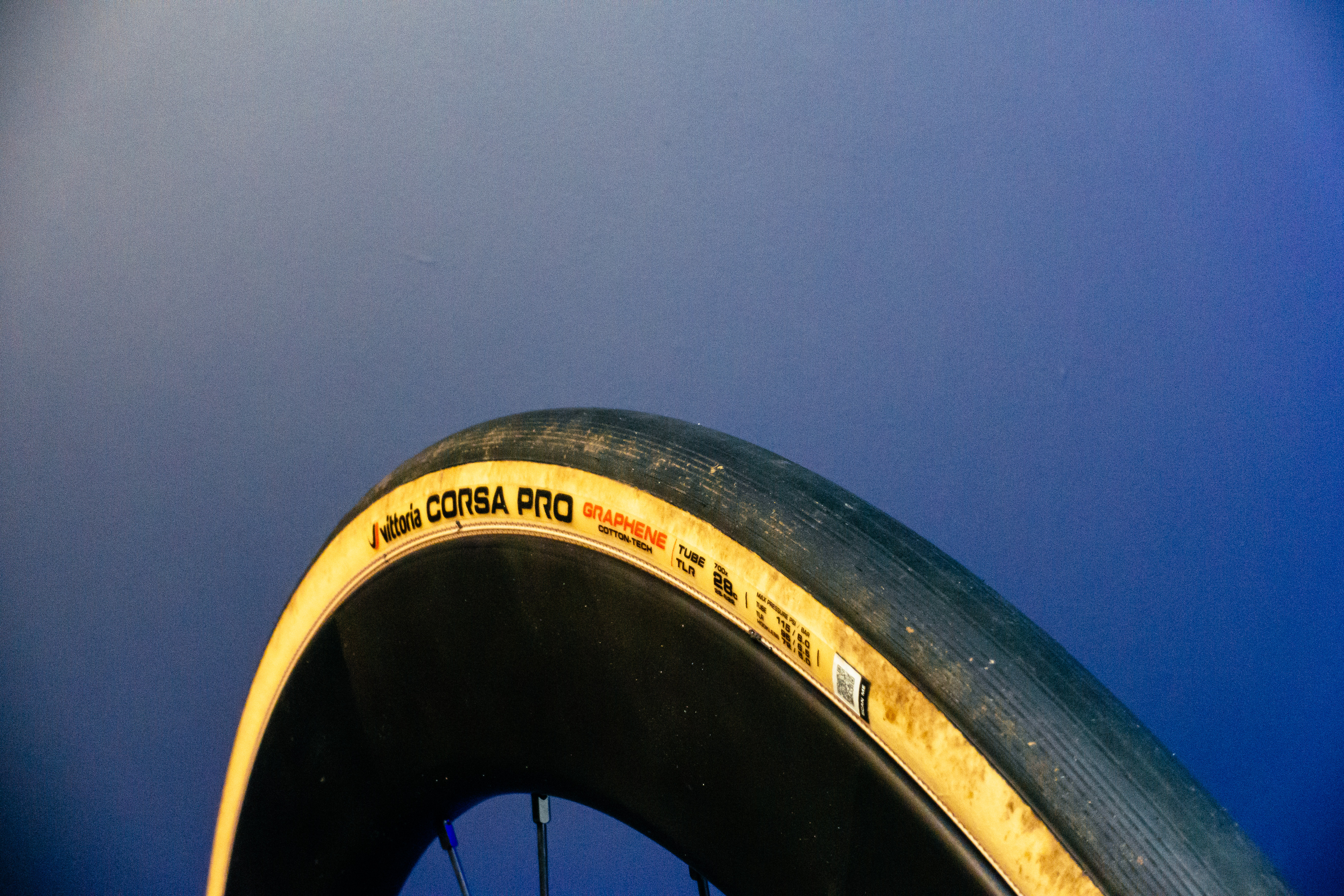
Specifications
Reasons to buy
Reasons to avoid
Similar on the stats front to the GP5000 S TR, the Corsa Pro has a cotton casing for an incredibly supple ride feel that also imparts a slightly better grip. The sidewalls are a little more fragile, but the main body of the tread is more robust, and taken in the round these are more or less just as good a choice as the Continental option, and for tanwall purists they're superior. My Vittoria Corsa Pro review should help if you're still undecided.
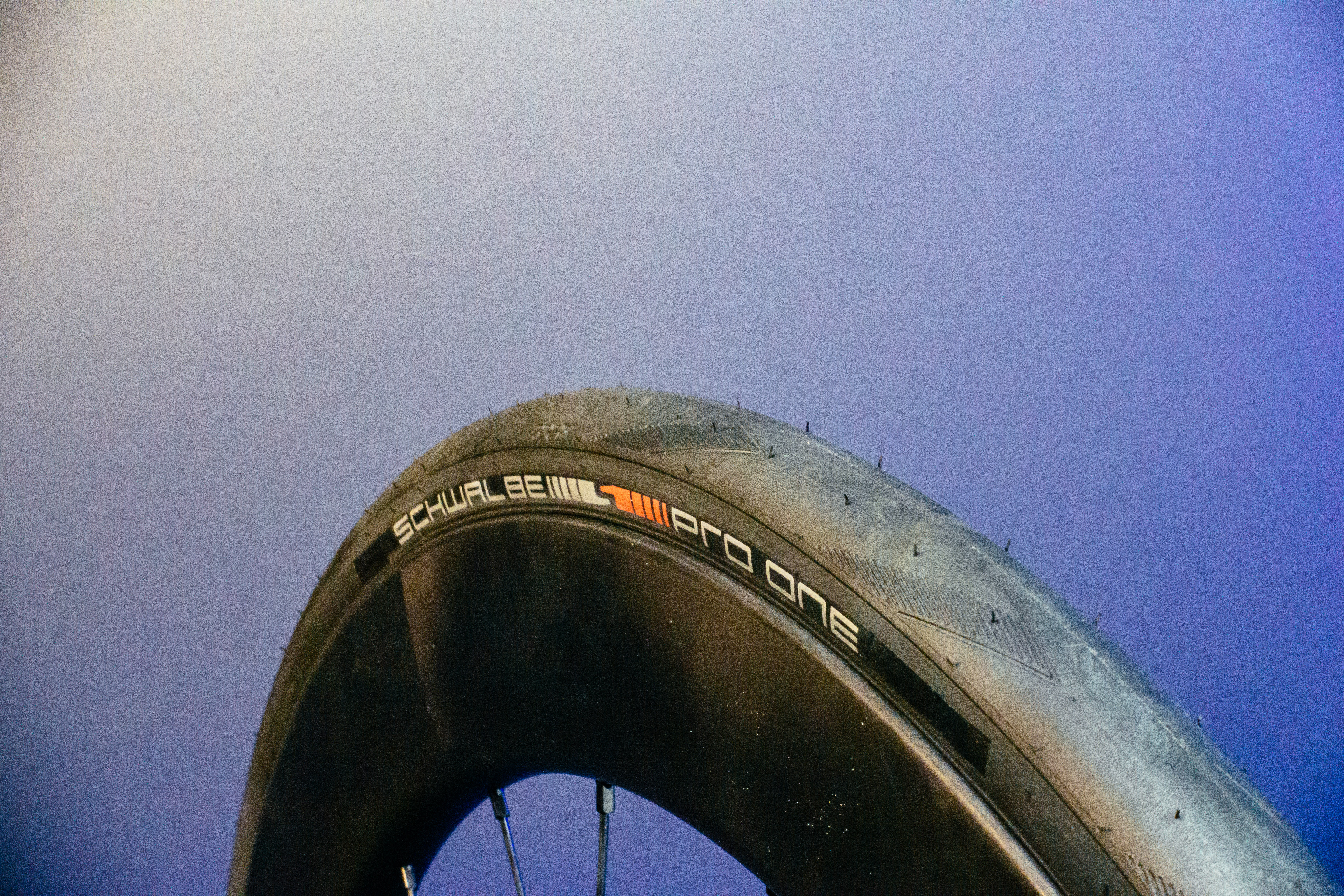
Specifications
Reasons to buy
Reasons to avoid
Another excellent all-rounder, the Schwalbe Pro One tyre is the rubber of choice for the Canyon-SRAM team. They're a little more draggy than the two big-name options from Conti and Vittoria, and a little less grippy, but the flipside is slightly better puncture protection than the GP5000 and an RRP that's noticeably cheaper than both.

Specialized Turbo Cotton
Specifications
Reasons to buy
Reasons to avoid
If you are still using inner tubes, then the Specialized Turbo Cotton is still a tyre that can mix it with the best at the WorldTour level. Used by both Soudal-QuickStep and Bora-Hansgrohe (with latex tubes) because the teams insist it's faster than tubeless. A great choice for rim brake users, too, as it comes in a little narrower in 24c, 26c and 28c widths.
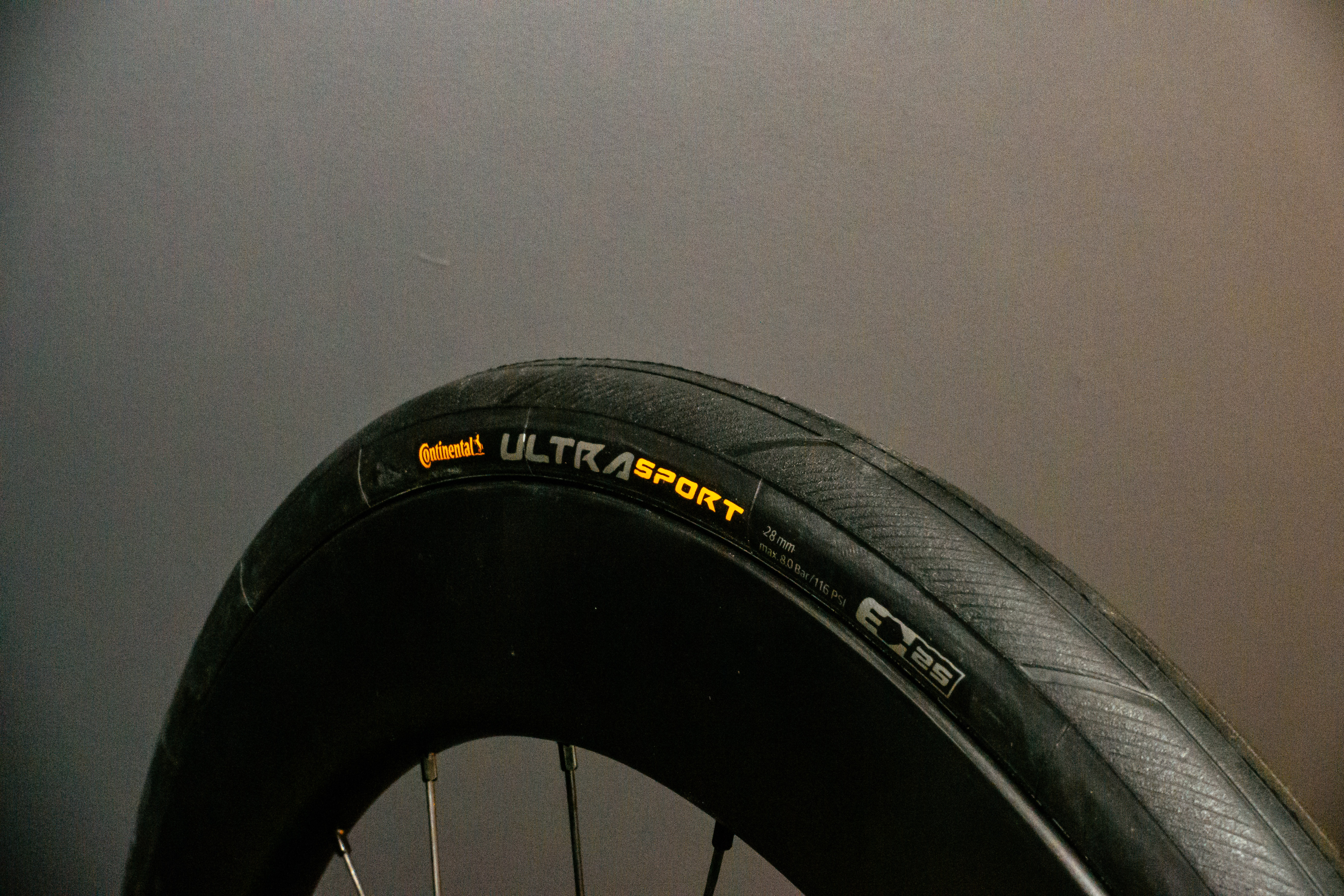
Continental Ultra Sport III
Specifications
Reasons to buy
Reasons to avoid
Continental's second-tier offering has impressive stats, especially when you consider you can pick a pair up for less than half the price of one GP5000 S TR. The high TPI count means the Ultrasport III's ride is far closer to race-ready offerings than other budget tyres. I've really enjoyed them, especially in the wet, when they've come specced on test bikes.

Goodyear Eagle Sport
Specifications
Reasons to buy
Reasons to avoid
Alas, no stats, but still a widely respected entry-level performance tyre from one of the biggest names in motorsport. A great price, but unlike many at this price point you also get both black and tan wall options for that premium look, and a full range of widths from 25c up to 32c. Thoroughly modern and wallet-friendly.
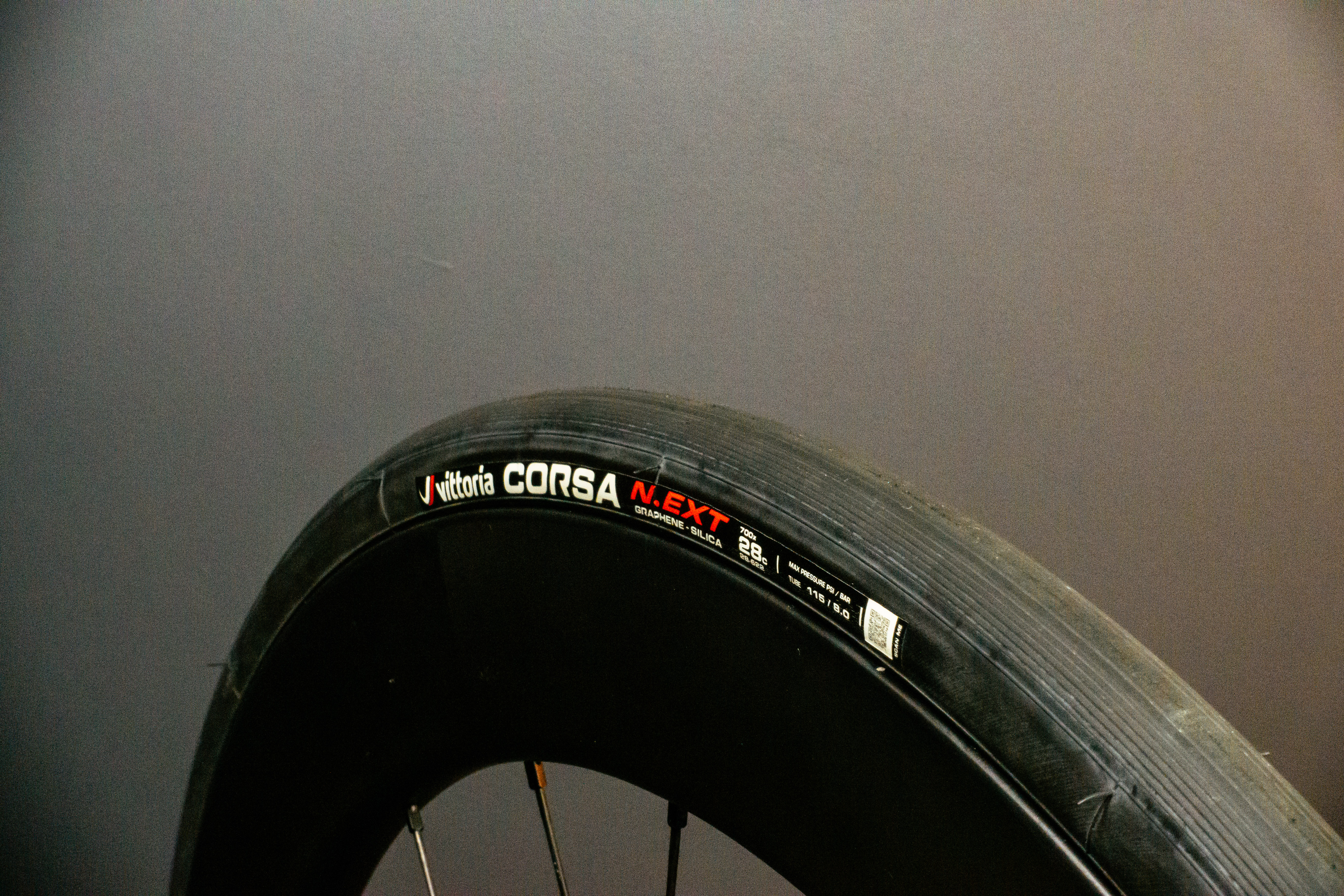
Vittoria Corsa N.Ext
Specifications
Reasons to buy
Reasons to avoid
I really rate these, and have a set on my own bike. You get the same handling feel as the Corsa Pro more or less, though with a slightly less supple ride feel, but with increased puncture protection. Sure, they're a little more draggy, but they're miles cheaper and if you spend any time riding in a city or debris-filled country lanes, they make heaps more sense.
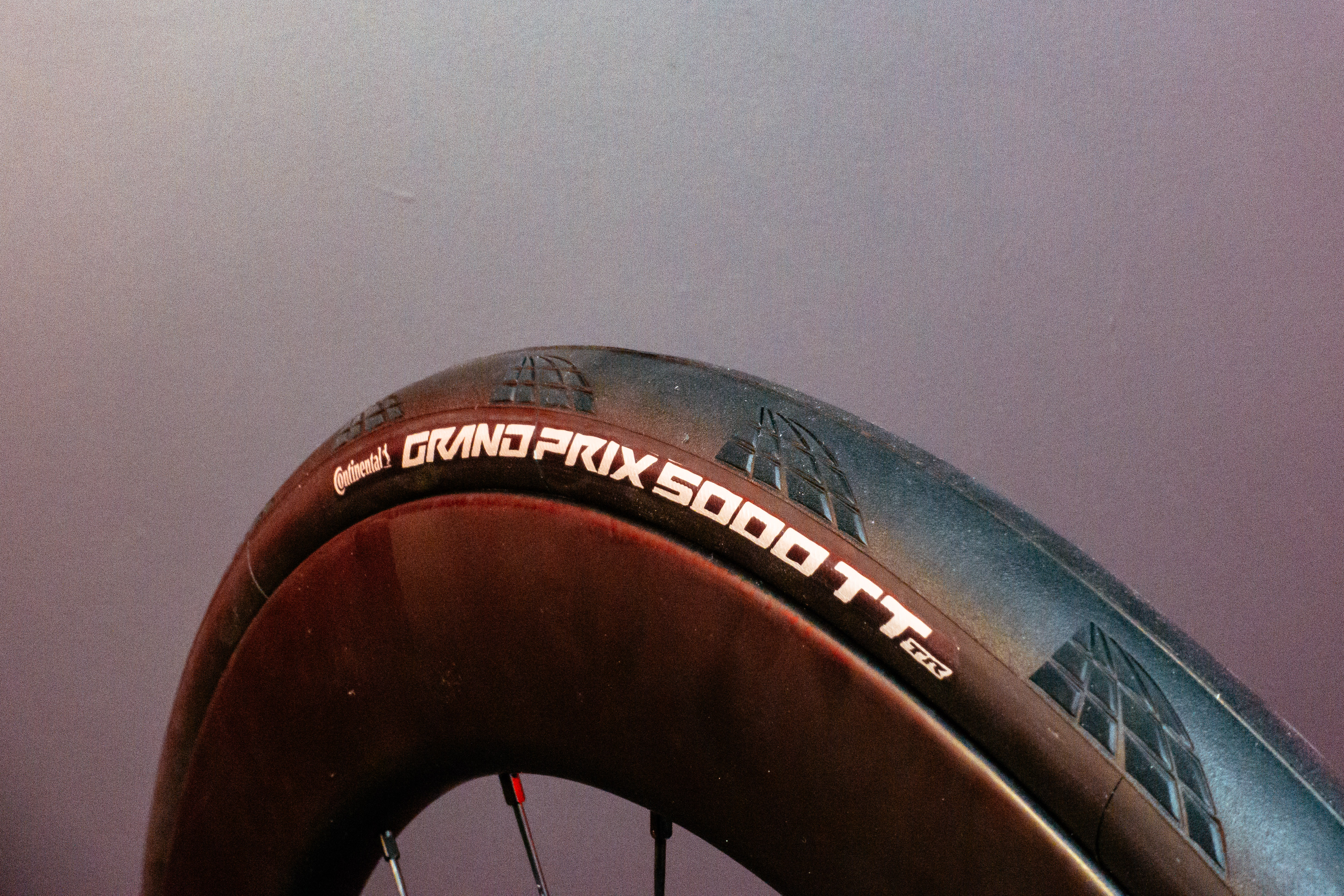
Continental GP5000 TT
Specifications
Reasons to buy
Reasons to avoid
In the same way as the Vittoria option, the GP5000 TT is a faster, but more fragile version of the GP5000 S TR, designed for time trial use. If the absolute fragility of the Vittoria puts you off then these are a great shout. The wattage difference is there, but it's so little you won't feel it.
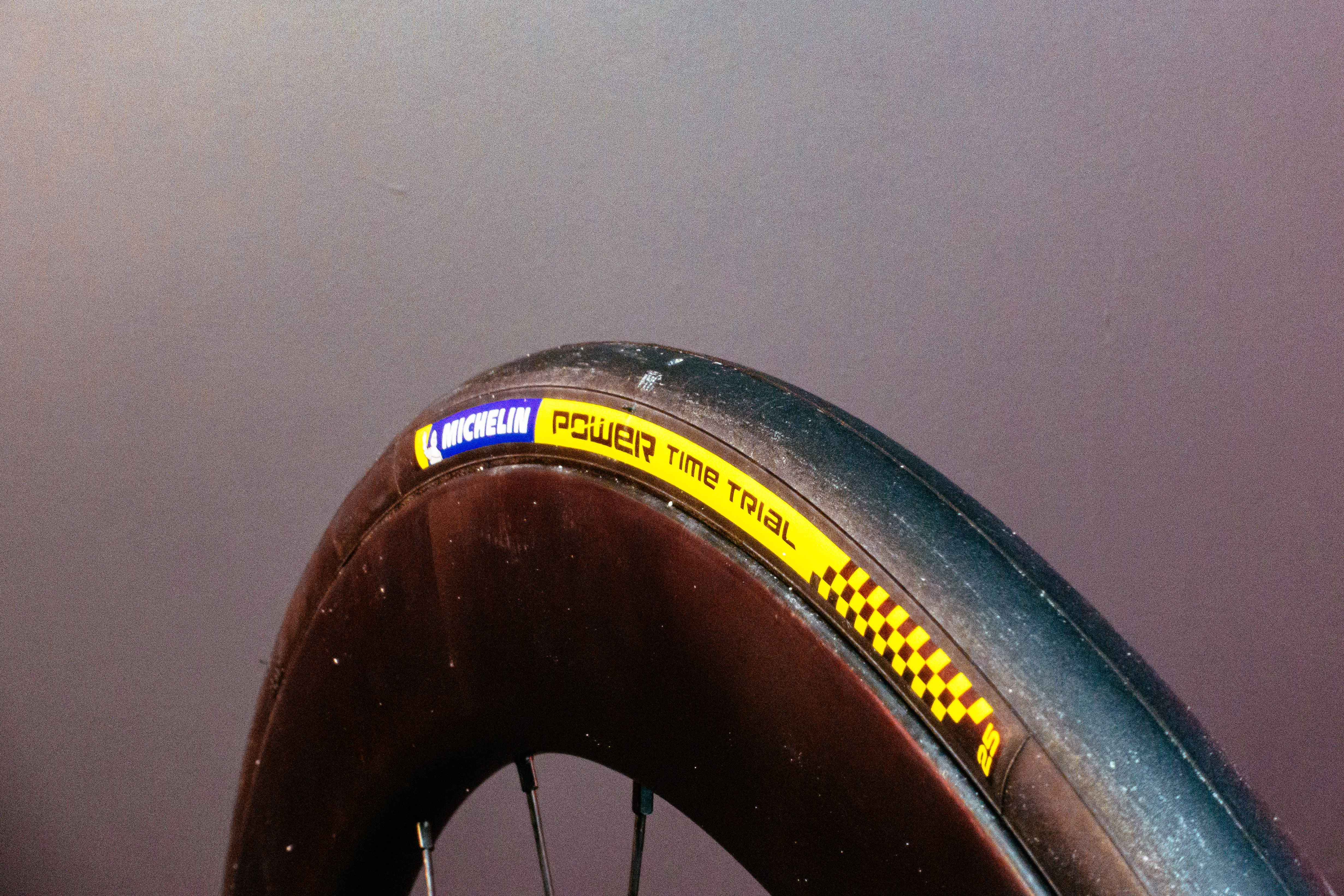
Michelin Power Time Trial
Specifications
Reasons to buy
Reasons to avoid
If you're not into tubeless then you could opt for the Michelin Power Time Trial instead. It's about as fast as a tubed tyre can get, and the lack of tubeless functionality means you save a sizeable chunk of cash over the Vittoria and Continental options, especially if you're buying a pair.
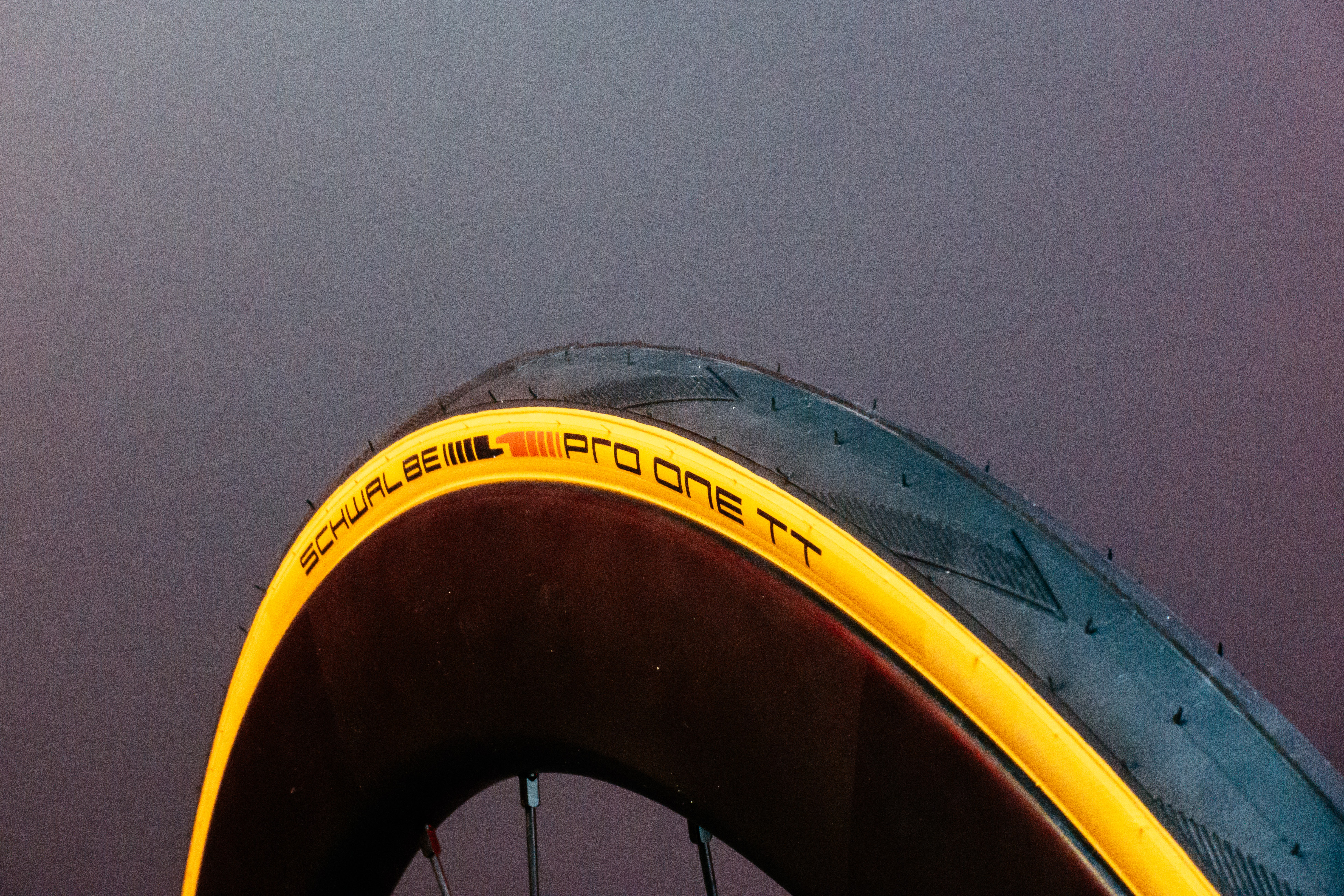
Schwalbe Pro One TT
Specifications
Not as fast, not as grippy, and just as fragile... so why include it? Well, for the price. The Pro One TT from Schwalbe regularly comes in cheaper than the Conti and Vitoria options, and the wattage difference is so marginal that if you're looking for value in a fast tyre, then this is the place to go.
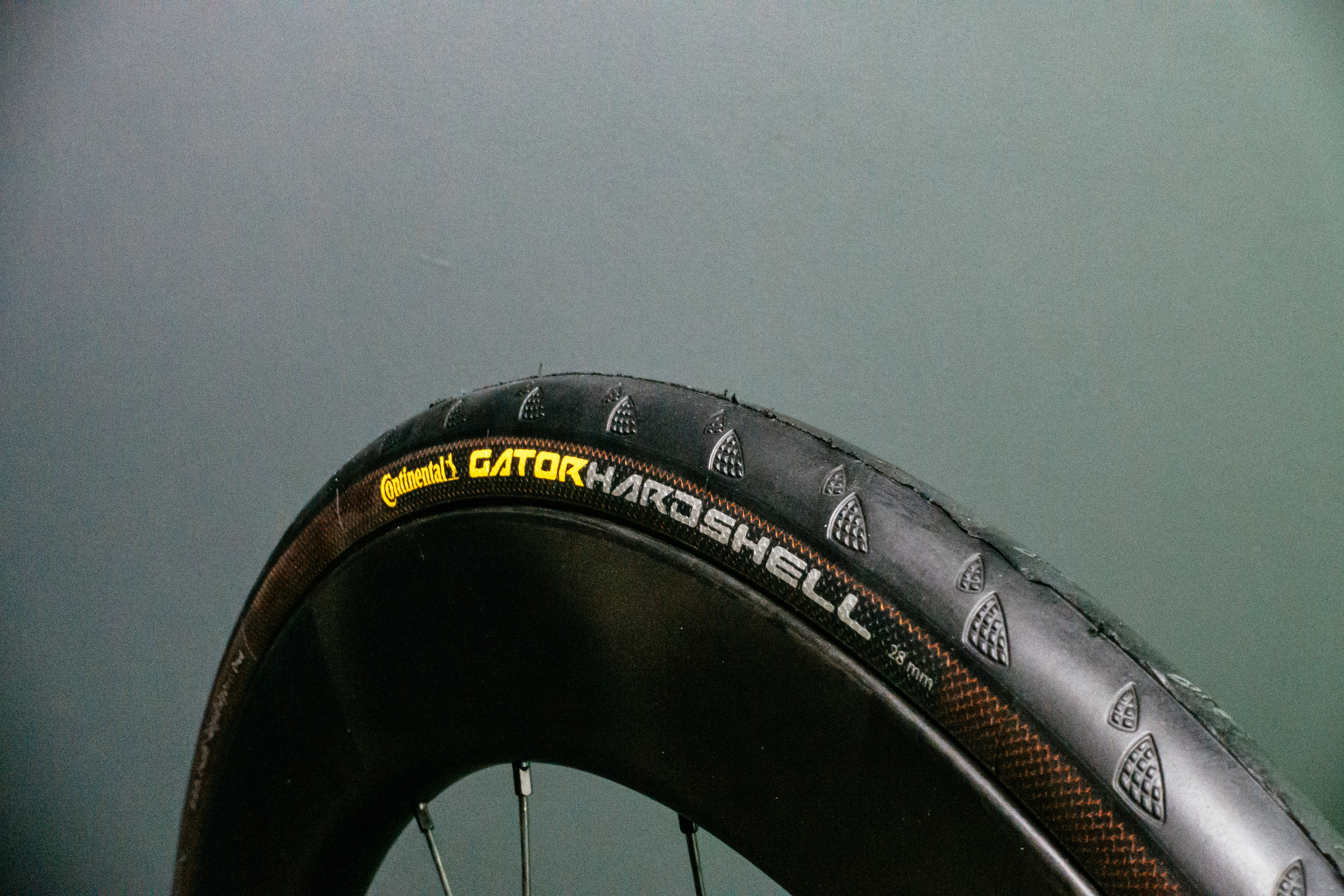
Continental Gator Hardshell
Specifications
Reasons to buy
Reasons to avoid
I ran a set of Gatorskin Hardshell tyres on my commuter for years and happily rode through endless smashed bottles on my way to the office. The new Gator Hardshell is even more robust, and while it isn't quite as solid as the Pirelli in tests, it's still incredible at resisting punctures. If you want a slicker tread pattern, then this is a worthy challenger for the crown.
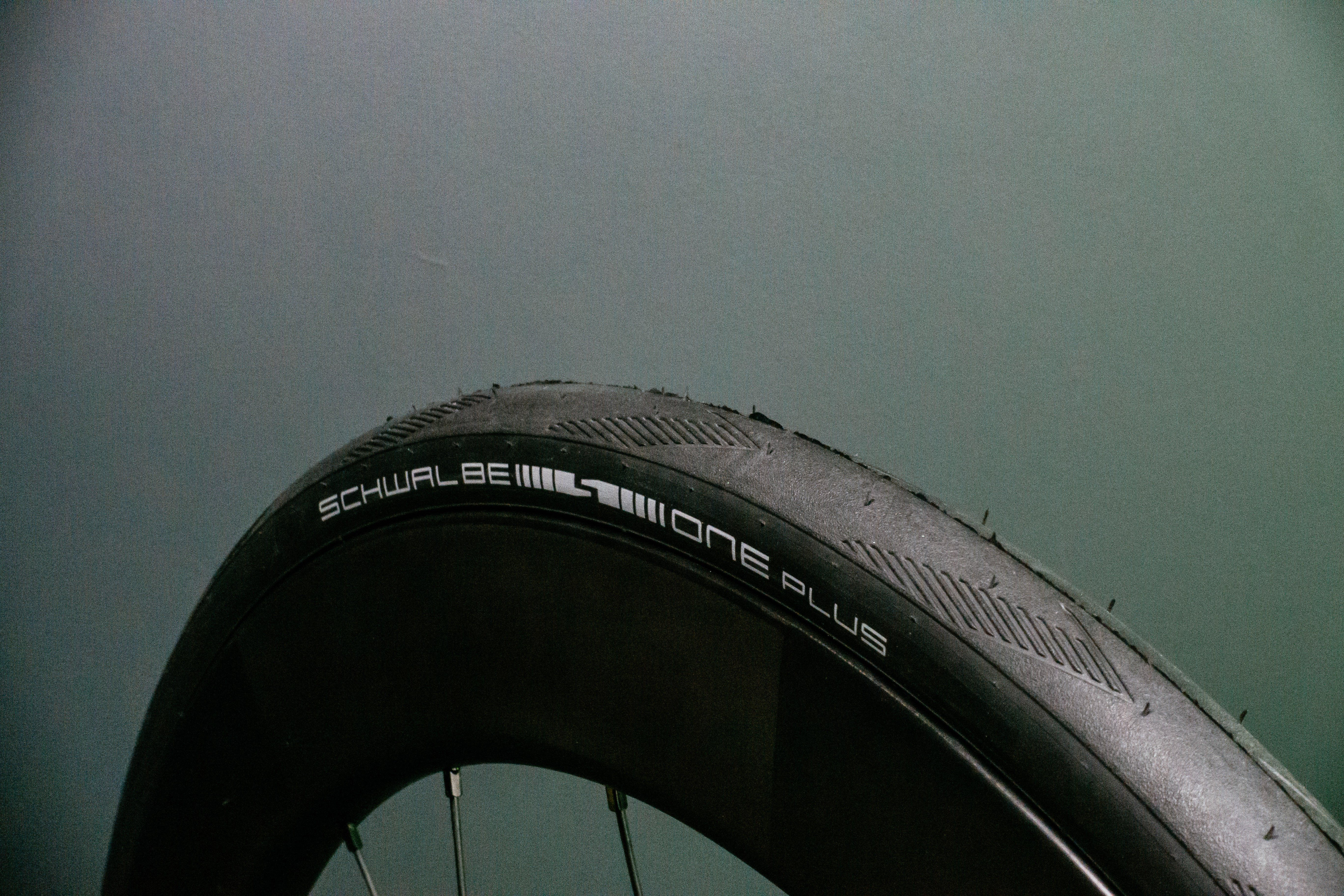
Schwalbe One Plus
Specifications
Reasons to buy
Reasons to avoid
This is the successor to Schwalbe's old puncture-resistant tyre, the Durano Plus, but brings the name into the 'One' family. If you're used to the feel of the Pro One then having a set of these on your commuter will be an easy transition. They also look the most 'normal' of the bunch, with no chunky tread or kevlar exposed on the sidewalls.

Schwalbe Marathon
Specifications
Reasons to buy
Reasons to avoid
The Marathon, and its various spinoffs, is THE name in touring tyres. The puncture protection is up there with the best, but the main draw is they basically last forever. The tread lasts so long in fact that Schwalbe has added an 'anti-ageing sidewall' so that the carcass doesn't give out before the tread does. If you're after fit and forget, go for these.
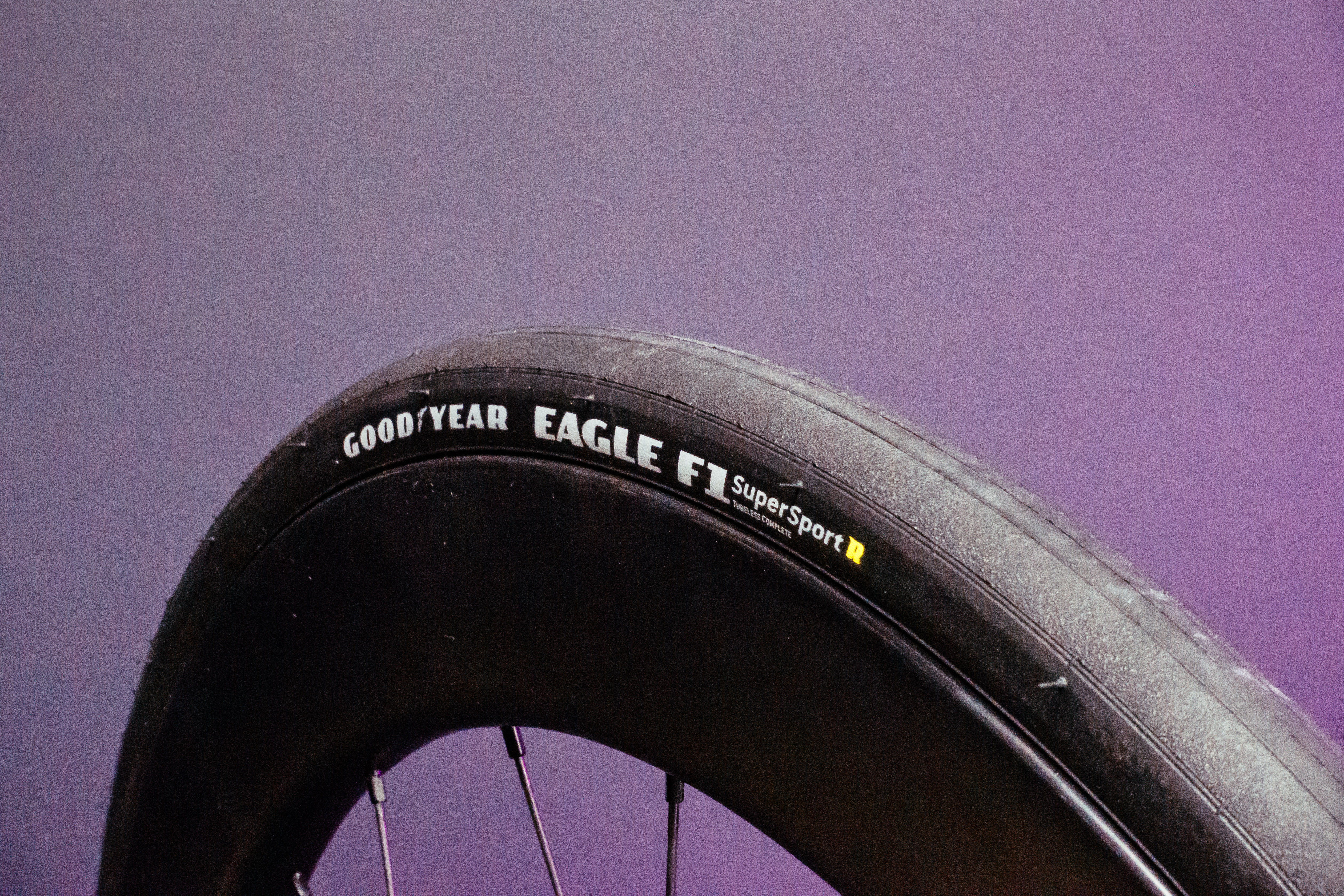
Goodyear Eagle F1 Supersport R
Specifications
Reasons to buy
Reasons to avoid
Another really grippy option, and easily the winner of 'longest tyre name' out of any in this guide. Faster than the GP5000 AS, with wattage figures easily in line with the all-rounders, but with improved grip too. If your winter roads are debris-free then these are a brilliant choice, but the puncture protection might put you off if you go near glass or anything else sharp.
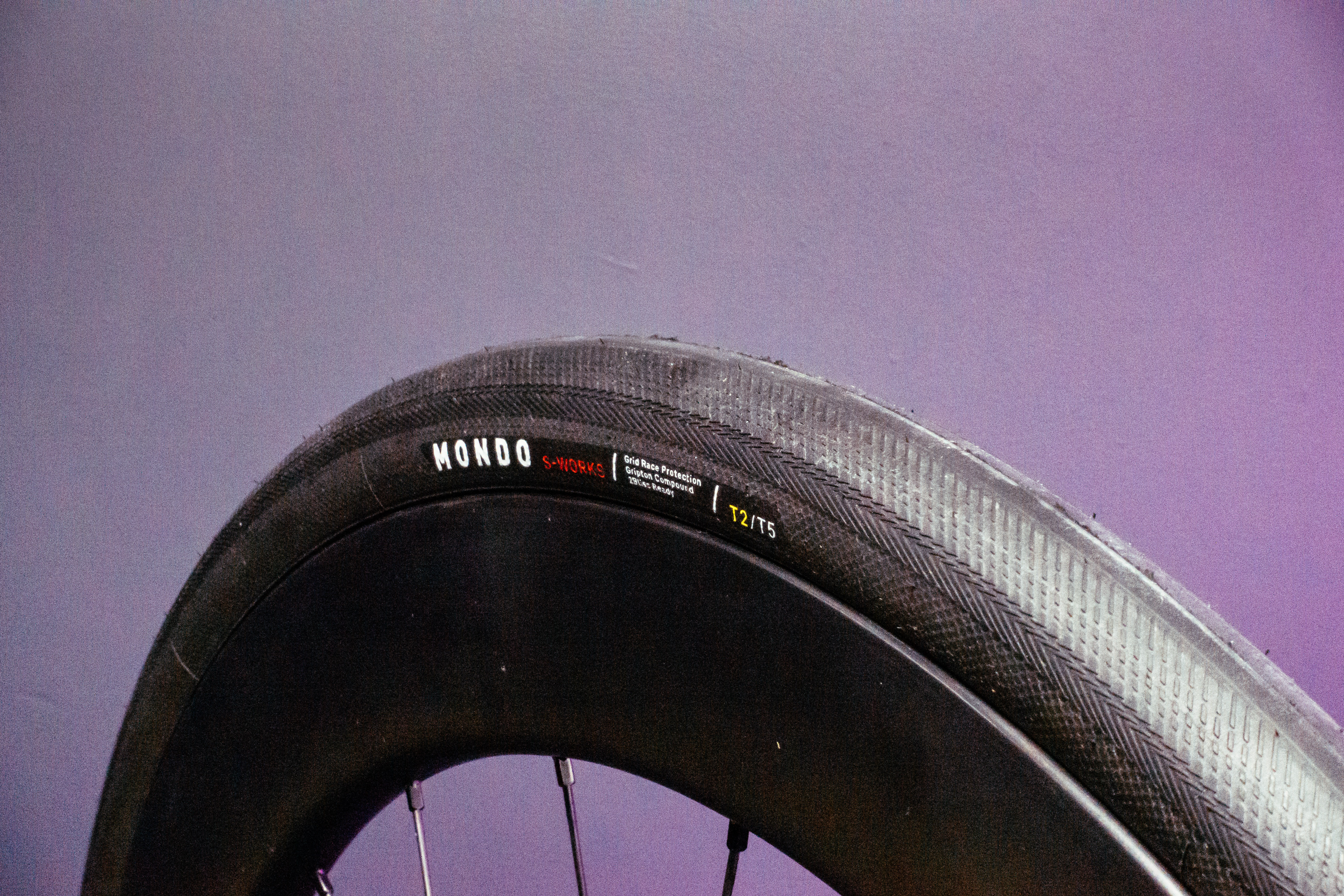
Specialized S-Works Mondo
Specifications
Reasons to buy
Reasons to avoid
A little slower, but also cheaper than the Continental option, with grip enough for Soudal-QuickStep over the cobbles of Paris-Roubaix. Oddly they don't come in a 30c width, but my feeling is a 32c is the sweet spot now, especially for winter use. The added volume just means even more grip and more comfort.
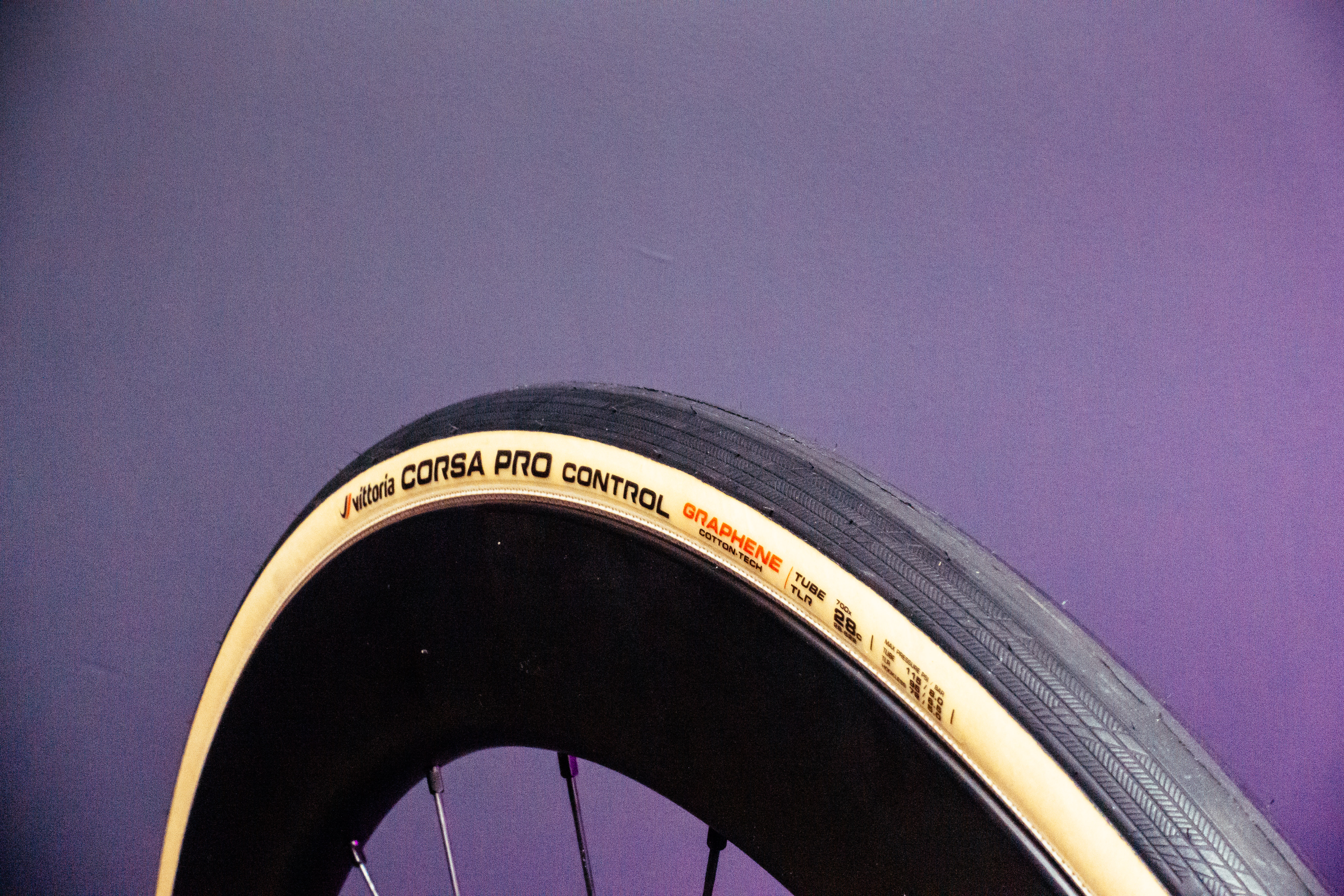
Specifications
Reasons to buy
Reasons to avoid
Oddly the Vittoria Corsa Pro Control has marginally less grip than the Corsa Pro in the BRR tests, but to my mind, they make a better case for most people by adding in far greater puncture protection. If you want the super supple ride feel of the Corsa Pro, but a more sturdy option then you won't be disappointed if you pay more for these over the Corsa N.Ext.
How to choose the best road bike tyres for you
Everything you need to know about hte best road bike tyres
What type of tyres should I get?
The best all-round road tyres are wicked fast, grippy across a wide range of conditions, last a decent number of miles, and can shrug off at least some debris that would puncture a time trial tyre. The majority of top-end road bike tyres nowadays are tubeless, but not all. If you're running tubes you can still run them in a tubeless tyre, but not the other way around, so do check. Some WorldTour teams are still running tubes, though they opt for latex over butyl, as it's more supple and that makes it faster.
If speed is your absolute goal, and primarily I'm talking about time trials here, then some tyres are created to be even faster than the all-rounders above. The tradeoff in most cases though is reduced puncture protection. By reducing or eschewing entirely the puncture protection strip usually found beneath the tyre tread it makes the whole system more supple, and therefore reduces rolling resistance, but more puncture prone. In our experience, it's best to keep these for specific events, rather than using them as general-use tyres.
Given that many of us live in cities, bestrewn as they often are with glass, the odd nail, and other such sharp objects, there are plenty of reasons to want a tyre with better puncture protection. If you're commuting by road bike, or just cant be doing with the faff of fixing a puncture, the following tyres are for you. The trade-off here though is that the tyres are heavier, and less supple, meaning they are ultimately a little slower and feel a little more wooden.
If you aren't a winter Zwift addict and instead head into the great outdoors you may find yourself craving a little more grip. Wet, cold tarmac doesn't grip like it does when it's hot and dry, and there are a slew of tyre options designed to better cope with this. While it may appear that the greater texture on the tyre tread is to physically grip the road surface this isn't the case. In actuality the grooves, or 'sipes' to use proper terminology, allow the tread to flex more, which warms it up and helps the rubber grip better.
As tubeless technology has proliferated, tyre manufacturers have had to improve their tolerances to achieve the snug fit necessary. This, as well as a drift to more premium products, means a set of top end tyres can cost you in the region of £200/$250. If, understandably, this is simply too much for you to warrant spending on what are consumable parts then fear not, as there are plenty of more wallet friendly options out there that still offer great performance.
What tyre width should I choose?
Tyres keep getting wider each year. If you're still using rim brakes then 28c is about as wide as you'll be able to fit unless you have direct mount brakes, but with disc brakes now commonplace it's not unusual to see 30c or even larger on top tier, performance road bikes.
My choice is 32c, if available in your chosen tyre and if it'll fit. The weight penalty is minimal, the ride is improved, and the grip is too. What's more, modern wide rims are now being aero optimised around 30c tyres, so the aero penalty isn't much either.
What's more, wider tyres means lower pressures, which in turn means tubeless works better. If you're on the fence, try wider and you won't regret it.
Which road bike tyres are most comfortable?
There isn't really one tyre that's more comfy than any others, but it's a matter of tyre width. The wider you go the lower pressures you can run, and the more cushioned the ride will be. Obviously taking this to the extreme anything with enormous balloon tyres will be super comfy, but also very slow. If you want to be more comfortable try going up a tyre size if you can, and do some research to make sure you aren't pumping them up too hard - this is a really common mistake.
Are tanwall tyres better?
Tanwall tyres (i.e. the sidewalls of the tyre are yellow/brown/tan) used to indicate that the tyres have a cotton casing. This cotton casing makes for a super supple ride, better grip, and a low weight.
Brands nowadays have caught onto the fact that tanwall=quality, and to some extent it's become the fashion, so many tyres that aren't cotton cased are available with tan sidewalls, where it can often mean a slight weight penalty of a few grams over the all black option.
My choice is to go for tan if they are actually cotton, like the Vittoria Corsa Pro, and black if not, like the GP5000 S TR, but really there is no tangible difference in real world performance, so go with what your heart desires.
Are all road bike tyres tubeless?
No. Most high performance options are now, though, as it is becoming the norm in the pro peloton, but many mid- and low-tier tyres are still designed for inner tubes only, so be sure to check before you pour any sealant in.
Are all road bike tyres hookless compatible
No. Hookless rims (i.e. rims with straight internal sidewalls) are an emerging standard that hasn't taken off entirely yet. As such many tyres, especially those at the mid and entry level, aren't designed for use with hookless rims, which you only tend to find on premium rims (by which I mean carbon ones).
Be sure to check both your rims and tyres before embarking on fitting them up, as an incompatible combination could result in the tyre suddenly coming off the rim while riding.
FAQ
Why are bike tyres so expensive?
At the absolute pinnacle of tyre performance, improvements in speed and grip are hard-won through extensive R&D in the tyre construction, the tread pattern, and the rubber compounds used. Essentially the very best road bike tyres have got more expensive in step with their performance gains, and as manufacturing costs have increased.
The good news is the second-tier tyres, the ones that are all probably a better choice for the type of riding we tend to do (i.e. not racing) haven't increased in price nearly as much.
Are good bike tyres worth it?
Your bike tyres are the only thing that connects you to the road surface, and as such, they have a disproportionately large impact on how your bike feels. A good set of tyres can make or break a test bike in my experience, and upgrading your tyres is the single best upgrade you can make, especially if you want to improve your cornering confidence.
Which bike tyre brand is the best?
There is no 'best', I'm afraid, but rest assured every tyre in this guide is from a reputable brand. There are plenty of other decent brands out there, especially if you move into gravel tyres, but the big brands tend to mirror those in motorsport: Continental, Pirelli, Goodyear, Michelin, plus the bike specific brands like Vittoria, Schwalbe et. al.
Why are bike tyres so hard to mount?
When all bike tyres used inner tubes the manufacturing tolerances of the rim and the tyre bead didn't need to be quite so tight as they do for tubeless. With tubeless becoming the norm, the rim and the tyre ned to fit really tightly together to form a decent seal, which has the knock on impact of making tyres harder to mount.
A decent set of the best tyre levers will stand you in good stead - luckily these have improved over the years to keep pace with the changing standards.
What is rolling resistance?
This is effectively the drag of the tyre, or how much wattage is need to push it forwards. It varies with pressure, and is a function of the tread pattern, the suppleness of the tyre carcass, and the rubber compound used.
Using latex tubes instead of butyl ones can drastically improve rolling resistance, as can swapping to tubeless.
The latest race content, interviews, features, reviews and expert buying guides, direct to your inbox!

Will joined the Cyclingnews team as a reviews writer in 2022, having previously written for Cyclist, BikeRadar and Advntr. He’s tried his hand at most cycling disciplines, from the standard mix of road, gravel, and mountain bike, to the more unusual like bike polo and tracklocross. He’s made his own bike frames, covered tech news from the biggest races on the planet, and published countless premium galleries thanks to his excellent photographic eye. Also, given he doesn’t ever ride indoors he’s become a real expert on foul-weather riding gear. His collection of bikes is a real smorgasbord, with everything from vintage-style steel tourers through to superlight flat bar hill climb machines.